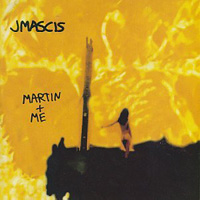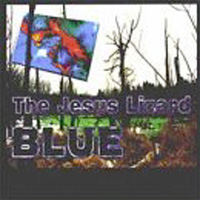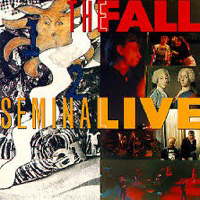 Beck
Beck
Odalay (DGC)
by Nik Rainey
The phrase “long-awaited follow-up” tends to have the ring of a death knell these days. Expectations are raised to the rafters, hype engines sent into overdrive, and more often than not, the cold hand of abject disappointment and betrayal (okay, maybe it’s two hands) descends to freeze the spines of the once-faithful. And our young friend Beck had an additional albatross hanging ’round his pale neck, a dead bird named L-O-S-E-R. The big question: Would the little man with the monosyllabic moniker consolidate the honky-hop-folk-pop gains he made on ’94’s Mellow Gold, or would he choke and twitter off into self-possessed Alternavegas oblivion, bound for the post-indie supper clubs and one-hit-wunderkind ’90’s-retro comps of the future? Well, take the word and pass it on from DGC to shining sea – Odelay is A-OK and it proves that Beck is here to stay. (Never said I could rap.)
The buzz on Beck after the Gold rush was sickeningly condescending, implying strongly that his big hit was a major fluke and that he was little more than a slack-shouldered idiot savant who just happened into prominence by the fortuitous timing of the post-Cobain loathe-rock backlash. A couple of failed singles and a slapdash pair of indie records appeared to back up that contention. As if to defy the naysayers, Beck recruited the Dust Brothers (the samplemeisters behind the Beastie Boys’ 1989 masterpiece Paul’s Boutique) as producers and crafted Odelay over a two-year stretch in a real studio (Mellow Gold was mostly recorded on a four-track). The end product is more confident than his debut, trading its ramshackle screw-around for a more disciplined (but still tickled) collage, knocking cock-eyed verbal tetherballs around waxy stax o’ styles with a deceptively reflexive shrug of his skinny shoulders. To these ears, it sounds like Beck is beating the Beasties at their own game – avoiding the potholes of rap braggadocio in favor of blurry snapshots of lower-middle-class glory cut with swathes of inspired silliness (my current favorite being “Lord Only Knows”: “Goin’ back to Houston/ to do the hot-dog dance/ goin’ back to Houston/ to get me some pants.” Kinda says it all, doesn’t it?).
Musically, Beck is astoundingly deft – no matter what mongrel genre catches his eye or what babble-of-the-gods trope trips off his lip, he always keeps one foot in the groove. “Devil’s Haircut” rides an appropriated riff from Them’s “I Can Only Give You Everything” that’s catchier than influenza. “The New Pollution” and “Derelict” incorporate sixtiesesque psych/Indian elements for nifty space-age bachelor launching pad music. “Novacane” has enough shortwave interference and electronic bleepage to bring a smile to Pere Ubu synthicidester Allen Ravenstine’s face. “Jack-Ass” plays off a swatch of second-hand Dylan (once again by way of Them) – a neat sonic joke, considering the Gen-X Zimmerman tag he’s been dogged with these last two years. “Minus” kicks off with a bass figure somewhere between Pearl Jam’s “State of Love and Trust” and the Fall’s “Terry Waite Says,” which inadvertently points up what makes Beck so refreshing (and thus necessary) — unlike the grouches that front either band, Beck’s appeal hinges on his sense of (gasp!) fun. “Ramshackle,” the closer, hearkens back to his folked-up, lo-fi origins, though I doubt K or Bong Load could have ponied up for a guest shot from jazz bass great Charlie Haden. (So there, major-label hatin’ indie jagoffs!) And of course, there’s more straightforward rap toons too, but they’re musically and spatially inventive enough to make the gangsta goons choke on their blunts. So that’s where it’s at – from goofy novelty act to world-class mixmaster, Beck has thrown off the shackles of alternopression and Odelay is his cry of freedom. The slacker ascendant. The loser triumphant.



